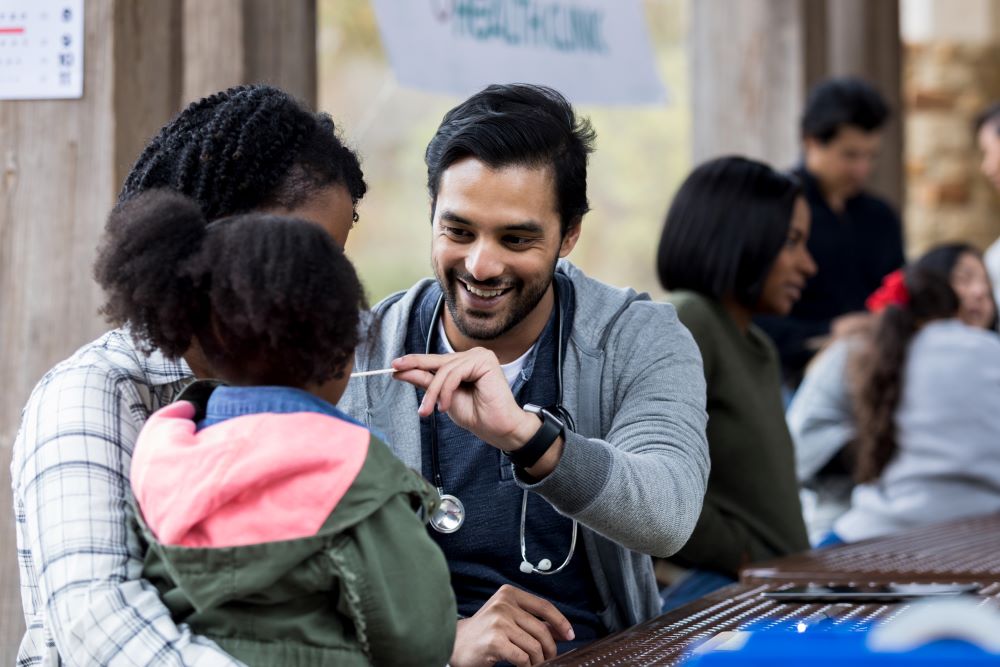
Picking a specialization as a pharmacist isn’t always easy. However, hearing about a specialty from a professional can make it easier to determine if it would be a good fit. We asked Dr. Francesca Johnson about her work as a pharmacist with federally qualified health centers.
What is a Federally Qualified Health Center?
Federally Qualified Health Centers (FQHCs) are public health centers focused on serving at-risk and medically underserved populations. They offer access to comprehensive healthcare regardless of a patient’s ability.
FQHCs qualify for grants and enhanced reimbursement from Medicare and Medicaid to offset costs for patients who cannot pay for care. FQHCs provide a wide range of services. These include preventive health services, dental services, mental health, and substance abuse services. They also provide transportation services necessary for adequate patient care and specialty care.
What are the responsibilities of pharmacists in FQHCs?
Pharmacists can serve in multiple roles in FQHCs. If the FQHC has a pharmacy onsite, pharmacists can practice in a dispensing role in a community pharmacy setting.
Pharmacists in this role have many responsibilities. They fulfill the medication and information needs of patients in an outpatient setting. Additionally, they provide discounted medications through the 340 Drug Pricing Program which allows qualifying hospitals and clinics that treat low-income and uninsured patients to buy outpatient prescription drugs at a discount.
FQHC pharmacists can also practice in an ambulatory care role, where they provide comprehensive medication management under a collaborative practice agreement. Dr. Johnson is responsible for one-on-one patient visits at her practice site. During these visits, she evaluates medication regimens and provides education. She also adjusts care plans and medications to help patients understand and manage their chronic health issues.
FQHC pharmacists can improve healthcare quality in many ways. They act as experts on medication and provide support to primary care providers. This helps to improve quality measures in the treatment and prevention of diabetes, blood pressure, and cardiovascular disease. They can contribute to departmental planning, make outreach calls to encourage medication adherence, and provide population health services.
Additionally, they can make recommendations to providers that align with quality measures. Dr. Johnson dedicates part of her time to this role. She has significantly improved star ratings and reimbursement rates at her organization.
Do FQHC Pharmacists interact with students?
FQHC pharmacists frequently precept students and also residents in both the community and ambulatory care settings. Post-graduate residents have the option to complete their residency entirely at an FQHC. Alternatively, they may undertake a rotation at an FQHC during their residency.
How do I become an FQHC Pharmacist?
First, you must receive a Doctor of Pharmacy (PharmD) degree. If entering into a community role at an FQHC, typically no additional training is required. Pharmacists entering an ambulatory care practice role at an FQHC usually require one to two years of post-graduate residency. Therefore, the residency should include several rotations in ambulatory care.
Additionally, FQHCs are mission-driven organizations. Pharmacists should have a strong passion for helping others. They should also strive to reduce health disparities and be aware of different cultures. This is essential in this practice area.
The patient care experience is incredibly fulfilling. It enables pharmacists to be servant leaders who provide care to those in the community who need it most.
Why Concordia for pharmacy school?
Concordia’s School of Pharmacy can help you find the right pharmacy field for your healthcare skills and interests. It will also help you grow as a servant leader. The coursework, patient labs, and experiential education will advance your abilities, knowledge, and compassion to provide culturally sensitive pharmacy services.
Want more information?
To learn more about the pharmacy program, visit our School of Pharmacy.